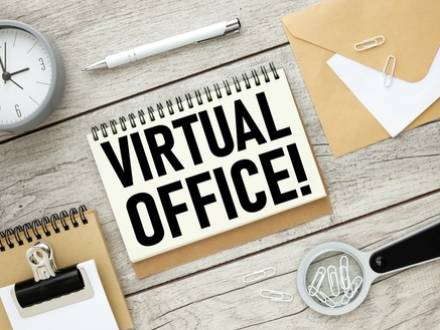Advantages and Disadvantages of Using Virtual Offices for Your Law Firm
 On paper, the idea of a virtual office makes sense. Virtual offices can help lawyers appear more accessible to nearby clients, or test interest in a new market. A low-cost address, optional meeting space, and a way to extend your visibility without signing a lease are certainly appealing.
On paper, the idea of a virtual office makes sense. Virtual offices can help lawyers appear more accessible to nearby clients, or test interest in a new market. A low-cost address, optional meeting space, and a way to extend your visibility without signing a lease are certainly appealing.
But as digital marketing and search platforms evolve, virtual offices have become riskier, especially when they are only used to create the impression of practicing in a city where you do not actually work (or work very often).
At OVC Lawyer Marketing, we have recently seen multiple firms experience problems with their Google Business Profiles because Google removed or suspended listings connected to virtual office locations. Understanding the pros and cons of virtual offices – and having the help of an outstanding team of digital marketers – can help you make smart decisions about your marketing strategy.
What Are the Advantages of Virtual Offices for Attorneys?
Virtual offices do offer some real benefits when used appropriately. They help reduce overhead by letting attorneys avoid commercial rent and long-term leases. They may provide occasional access to conference rooms or support staff, and they can help small firms look more professional than using a home address.
Virtual offices also make it easier to experiment with expansion. If you are considering opening a second location, using a virtual address can give you time to build name recognition and learn how much traffic a new geographic market might generate.
What Are the Disadvantages of Virtual Offices for Attorneys?
The disadvantages have become more significant in the past two years as Google, Apple Maps, Yelp, and other platforms crack down on listings that do not represent real, staffed office locations.
Google’s policies now emphasize in-person contact at a stated location, meaning a Business Profile may be flagged or removed if the office is not actually staffed during business hours. Virtual offices are specifically listed as being ineligible for Business Profiles.
When Google unlists these locations, firms lose local map visibility, reviews tied to the page, and the ranking power those profiles provide. Recovering a suspended listing can take weeks or months, and in many cases Google simply denies reinstatement.
Another disadvantage is how virtual offices can affect client trust. Today’s clients are more skeptical. Many check addresses on Google Street View or search tenant directories. If your virtual address appears to be a shared coworking facility, a mailbox store, or simply inactive, potential clients may question whether your firm is truly established in the community.
Should Lawyers Avoid Virtual Offices?
Some firms use virtual offices successfully when the offices are staffed or when the firm genuinely meets clients there. What matters most is transparency and alignment with Google’s guidelines, not simply having a pin on a map. Google wants to know that the location accurately reflects your business’s presence and lays out these specific guidelines for businesses to follow:
-
The office location does not qualify for a Business Profile if a business does not operate out of that location, even if the business rents the physical mailing address.
-
Co-working spaces can only be listed as an office location if the business staffs them during working hours, has visible and permanent signage, and accepts customers at that location.
Call OVC for a Website Review and Customized Marketing Plan
If you want a marketing strategy for your law firm supported by real people who understand how attorney digital marketing works, we can help. Contact OVC Lawyer Marketing today for a full website review and a customized, long-term marketing plan designed to strengthen your online presence.






